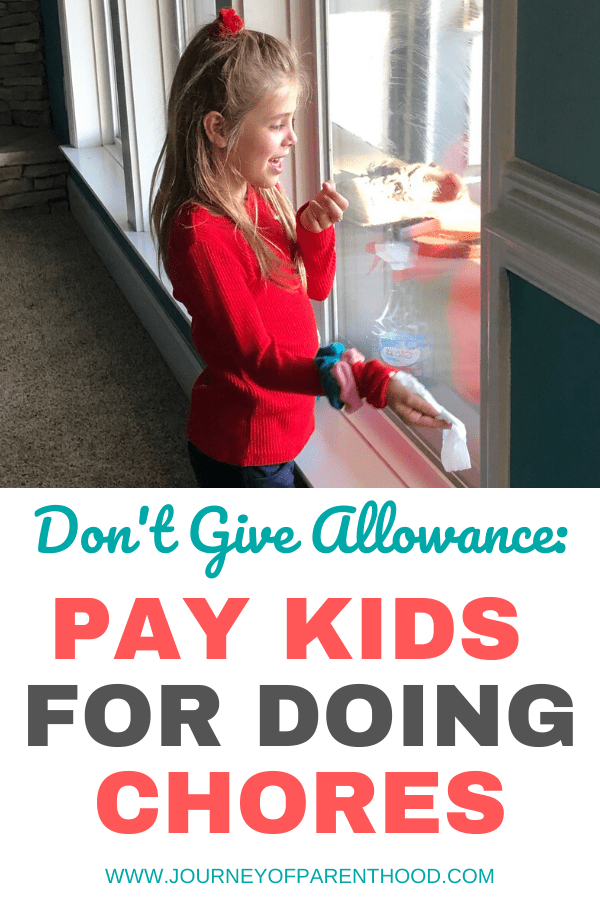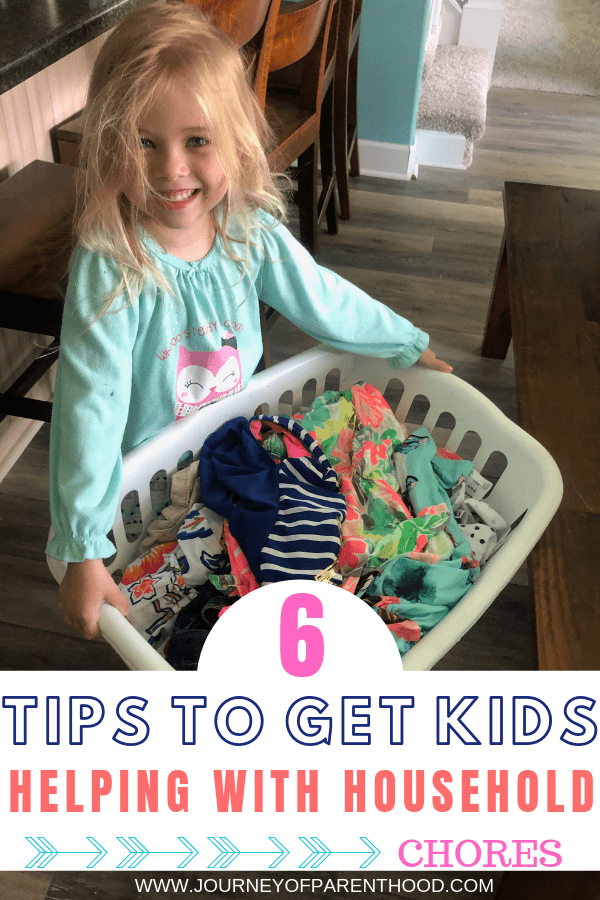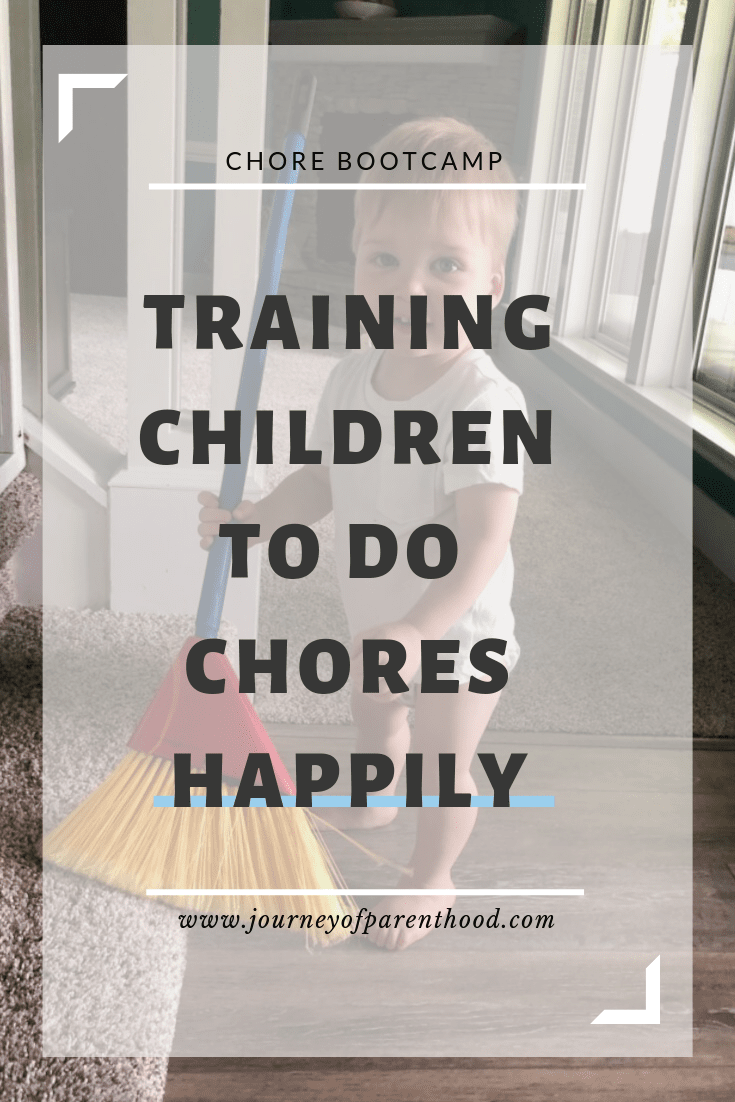A commonly asked question among parents is: should kids get paid to do chores?
There is a lot of debate surrounding the topic with parents today.
Some believe kids should contribute to the home from an early age, have assigned chores, and not receive any payment for those duties.
Some believe kids should “be kids” and have little to no responsibilities around the home and be paid a regular allowance with no strings attached.
Do I think kids should be paid to do chores?
I used to think that kids should receive a set amount of allowance once they were old enough to need it (middle school or even older) and that they should have chores to help around the house without being paid for those duties so they learn that it’s the “right thing,” not just a thing they’ll get paid for.
Paying kids for chores? Nope. Not Me!
I believed doing chores should start at a young age but that allowance was a separate thing to be handled once an age was reached where pocket money was necessary.
Once I read Dave Ramsey’s Total Money Makeover we made the decision to purchase the Financial Peace Junior Kit for our children.
And I totally changed my mind about the whole way we were going to handle the kids chores, and allowance, in our home.

Disclaimer: This post was originally published in January 2020 and has been updated for accuracy and clarity. Post contains affiliate links.
Should Kids Get Paid to Do Chores?
Dave Ramsey never gave his children allowance but instead believes in paying a commission for their chores.
I love this idea and concept.
I want to teach our kids money management skills from early ages so they understand the value of money.
Why wait until they “need” the money in order to start training them in how to manage it in real life?
I want them to have a healthy relationship with money as well as to learn a strong work ethic.
By paying them for their work we give our children to opportunity to learn how to save, learn to spend wisely, and learn to give to the Lord.
We have been doing this system for several years and it’s been a great experience.
We believe that children should be paid a commission for chores as early as they are truly able to help contribute to the running of the home – for us, we chose age 4.
Four is a great age to start learning about money and have the skills needed to complete household tasks and help keep a clean house.
I love knowing that from such a young age our kids have been learning how to work hard to earn a profit, how to be committed to giving first to the Lord with a happy heart, and that their savings accounts begin growing all while learning how to manage money in a positive way!
So should kids get paid to do chores? Short answer: YES!

Age-Appropriate Chores For Kids
After we determined that our kids should get paid to do chores, next came deciding which ones to assign to each age and creating a chore list and reward system.
We currently have three children who are over the age of four and are eligible to earn commissions from tasks around the house.
Every year I go over the list of chores our kids have and decide what items to change and how specific tasks benefit our whole family.
As younger children get older they are better able to complete more difficult tasks so usually a task an older child has will be passed down to the younger siblings and the older one will graduate to a more difficult task that I feel they can handle at that age.
For me, it isn’t just about giving my child some simple task so I can have a “reason” to pay them.
Just like I want my kids to spend smart, it’s important for my husband and I to set an example for our children by spending smart as well.
Younger kids look forward to earning that sense of responsibility that comes from contributing to the household and helping other family members.
It’s not wise for us to financially give our children money and allow them to just do simple tasks that don’t give any real benefit to our home.
I’m not paying kids just to pay them!
It’s also important to consider tasks they can do well. Ones that require hard work but are also tasks they can succeed without frustration.
It also does not benefit me for my children to do a task that they are not ready to be able to do it well. In those cases, I’d have to be doing the chore myself after they did it in order to make sure it was done correctly.
Young kids may have a hard time with some household tasks and it’s important to work out a simple chore chart that includes both basic chores for little kids as well as specific tasks that are well suited for older children in any age group to take on well.
Having chores isn’t just about working hard or managing money – it’s also about learning independence and I want to make sure my children are up for the tasks before they try to tackle it.
Being able to take on household tasks independently provides powerful tools for kids in the long run and can produce good habits for their future – such as learning the best way to complete their own chores in adulthood through intrinsic motivation.
When I evaluate the chore charts each year I look at tasks that maybe weren’t helpful to our home and change them and I also consider what things we could use more help with and will add them to the chores.
Recommended Reading:
Both of these books have helped me so much in how to parent my children in regard to money. Obviously, Dave Ramsey has wonderful advice but I also highly recommend reading Take Back Your Family as it helped me to better understand the value of seeing our family as a TEAM and encouraging my children to contribute to that family team by using their God-given talents!


Should Kids Get Paid To Do ALL Chores? Paid Chores VS Unpaid Chores
Dave Ramsey talks about children being paid commission for certain household tasks but he also considers it important for kids to have required responsibilities which they are NOT paid to complete.
We all live in our home.
We all contribute to the mess of the house.
We all need to contribute to the maintenance of it on a regular basis too.
As I go through the chore items I think about the task and consider if it is one that is lightening my personal responsibility load (or my husband’s) or if it’s one that benefits the child.
Putting away their laundry? Not getting paid for that.
Cleaning their room? That’s a responsibility that would be theirs even if we didn’t have a chore chart.
Many of the items on my children’s weekly chore chart list are what I call “freebies.” Items in which they MUST do but they will NOT be paid a commission for.
Kids should get paid to do SOME chores. Just not ALL.
More Posts About Spending Smart:



What is a Fair Amount to Pay Kids to Do Chores?
I believe Dave recommends paying your child their age. So a 4 year old would earn $4 a week, 10 year old $10 a week, so on and so forth for each family member.
In our family, we don’t go by that rule of thumb.
We have four kids and paying each of them their ages each week would add up FAST.
Kids don’t have a real NEED for money.
Even just a small weekly commission amount can work in helping them to feel responsible, appreciate the opportunity to earn money on their own, and learn financial lessons.
When our youngest daughter turned four she was earning $2.25 a week.
It’s been plenty for her to learn and she’s never complained or desired to be paid a higher amount.
Each year as I evaluate their chores I also evaluate their earnings.
As they get older the responsibilities get more difficult but their earnings also increase.
Older children start to have a desire for items or activities that make it beneficial for them to have their own money.
Our oldest son saved for an iPad and bought it himself – he had SO much pride the day it arrived!

Paying Kids for Chores: When Do Kids Do Chores?
This is something we struggle with. Daily chores? Daily tasks for household duties? It’s tricky to find the perfect way to have a chore chart system that keeps track of completed chores, their monetary value, incorporates a daily routine, and provides kids with a sense of accomplishment.
Everyone has a busy life and it’s hard to actually make TIME for the kids to DO the chores they are assigned to do!
For a long time, I allowed my kids to do all of their chores in one day, the same day each week.
That day has been Friday.
They wanted to do all their chores in one block which I understood so I allowed the chores that were weekly to all be done on that day.
But we often travel so sometimes we were gone on Fridays or there wouldn’t be much time and it’d be a big effort to deal with moving the chores earlier in the week.
And our weekends were always starting off on a bad foot. Rather than looking forward to the end of the week, Fridays became the dreaded day of the week for our kids.
Kids would complain about the chores or drag their feet about doing them. There would be drama or issues or chores that didn’t get finished before we needed to eat dinner or do something fun together as a family.
It is a PRIVILEGE for our kids to have the opportunity to do chores.
Oh, I get heated when the complaints happen!
A big part of their opportunity to get paid for their chores? The requirement is to have them completed with a happy heart.
Complaining? Well, then they get to do those chores ALL as freebies. Without pay for that week.
I’ve actually decided this year to change this system. Fridays being chore days killed MY joy.
So we’re now going to do the weekly chores on Monday, Tues, Thur, and Fri (we have zero time on Wednesdays).
I think it’ll work out well once we get in the groove.
And if there are any complaints? I will deduct $0.25 off their pay that week for EACH complaint I hear.
Having set chores each week isn’t just a lesson to teach kids financial literacy, it’s a lesson for our kids about time management skills as well.
Are Weekly Chores Optional?
The freebie chores, the ones we don’t pay the kids to do, are obviously not optional.
They have to put their laundry away. They have to clean up their bedrooms.
These are non-negotiable items.
However, when we first started paying for chores I felt like they needed to be optional.
Do the task, and earn that income. Choose not to do it, don’t earn it.
However, kids are kids. And that setup became a back-and-forth of me needing to know if they planned to do a chore or not and it also created a “who cares” sort of attitude about doing chores.
There was less pride in their work and less motivation when they knew they didn’t “have to” do them.
Money being a new thing in their lives the motivation to work hard for money wasn’t quite there yet.
When you don’t have a full concept of what something is…it’s difficult to be super pumped about doing a chore to earn it!
We decided to have chores be mandatory and decided that the PAY portion is not. It’s a privilege to get paid, it’s a requirement to help out around the home.
We offer the commission as a courtesy to them. We can take away the money if the job isn’t done well or on time etc.
We also use chores as a teaching tool about doing work for the Lord and how we need to do our best, do it efficiently, in a timely manner, and with a happy heart.
And once we commit to something? We need to stay committed and see it through.
The kids go over their chores with me each year and agree to them.
That means they need to commit to completing them too because if they stop doing a chore it puts more on Zach and me since we no longer worry about those tasks due to their agreeing to complete them.

Paying Kids to do Chores: The Three Places Their Money Goes
We pay our kids on Sunday mornings.
This makes it easy to make sure all the chores for the week were completed and to take their “God money” right away to church.
I like paying them on Sundays as I really want to drive home the message that we pay God first whenever we earn any income.
He blesses us so much and tithing is a small way we can give back to Him and help further His kingdom here on earth!
When we pay our children we divide their earnings into three places:
- 10% of their earnings go to contributions to the church
- 10% of their earnings go to savings
- They keep the rest in their wallet as “spending money”
I do not use exact math for the amounts we give. I do simple rounding.
If a kid is supposed to give 0.65 to God, we just round to make it an even $0.75.
I also just keep it simple by giving $1 to savings.
We use physical money for all of these transactions and keep bank envelopes with their savings in them.
It’s important for kids to physically see and touch the money to help them learn about it.
Each of our children has a bank account and goes with us to set it up.
As we pay kids for their chores they see the savings envelope grow and love to count how much is in it before we make a deposit.
We have no rules about their spending money. They can spend it on whatever they’d like, as long as it aligns with our family values and beliefs.
Our oldest son has bought an iPad, a Nintendo DS and many slushies 😉
Our oldest daughter has bought her fair share of stuffed animals and our youngest tends to spend her money on whatever her older siblings spend theirs on!
Of course, they can choose to save more than the amount we put in each week. Our oldest daughter has a big goal to save $500 so she is currently putting all of her “spend” money into her savings envelope each week.
We also haven’t made any sort of stipulations about their savings accounts and our older kids have made their own savings goals.
Our oldest son says he plans to save his for a house someday while the oldest daughter is putting all of hers towards a trip to Hawaii.
Teaching our kids money management is something we highly value and explaining to our kids about earning money and also how to set money aside for savings and for tithing is very important and a great way to provide a sense of responsibility.
More Posts on Chores:



Chores to Do to Earn Money: Our Sample Chore Charts
Here is a breakdown of the chores our kids have and what they are earning for them:
Tess Age 5 (Will be 6 in July)
| Chore | Earnings |
| Put Away Clean Laundry | $0 |
| Place | $0 |
| Clean Room and Make Bed (once a week) | $0 |
| Have the Playroom Clean (work together) | $0 |
| Put Dirty Dishes in Dishwasher and Help Empty Clean Dishes Each Day | $0 |
| Wipe Down All Exterior Doors and Stair Railing | $0.50 |
| Wipe Down Kitchen Cabinets and Light Switches | $0.50 |
| Clean Baseboards (1-2 rooms per week) | $0.25 |
| Dust Bedroom | $0.25 |
| Clean Out Van | $0.25 |
| Vacuum Bedroom and Baby Brother’s Bedroom | $0.50 |
| Mop Downstairs Bathrooms | $0.50 |
| Empty Trash Cans | $0.25 |
She will earn a total of $3. She will contribute $0.25 to God each week, $0.50 to savings and have $2.25 to spend.
Britt Age 8 (Will be 9 in December)
| Chore | Earnings |
| Put Away Clean Laundry | $0 |
| Place Dirty Clothes in Laundry Basket | $0 |
| Clean Room and Make Bed (once a week) | $0 |
| Have the Playroom Clean (work together) | $0 |
| Put Dirty Dishes in Dishwasher and Help Empty Clean Dishes Each Day | $0 |
| Dust Bedroom | $0.25 |
| Mop Kitchen and Dining Room | $1.00 |
| Vacuum: Living Room, Hallways, Master Bedroom, Own Bedroom | $1.00 |
| Dust Living and Dining Room | $0.50 |
| Clean Appliances and Inside Microwave | $0.50 |
| Clean All Mirrors | $0.50 |
| Clean Kitchen Table, Chairs and Bar Stools | $0.75 |
| Clean Windows | $0.25 |
| Clean Showers and Tubs | $1.00 |
Britt will earn $5.75 a week in commissions for her chores. She will give $0.50 to God, save $1 a week, and have $4.50 to spend.
Kye Age 10 (Will be 11 in March)
| Chore | Earnings |
| Put Away Clean Laundry | $0 |
| Place Dirty Clothes in Laundry Basket | $0 |
| Clean Room and Make Bed (once a week) | $0 |
| Have the Playroom Clean (work together) | $0 |
| Put Dirty Dishes in Dishwasher and Help Empty Clean Dishes Each Day | $0 |
| Dust Bedroom | $0.25 |
| Change Out Sheets (2-3 Rooms Per Week) | $1.00 |
| Clean Kitchen Counters | $0.25 |
| Completely Sweep Kitchen Every Other Day | $1.50 |
| Sweep Bathrooms Weekly | $1.00 |
| Clean Bathroom Counters and Sinks | $1.00 |
| Clean Bathroom Toilets | $1.00 |
| Blow Yard in Winter / Pull Weeds in Summer | $0.50 |
| Vacuum Bedroom | $0.25 |
| Empty Pool Basket Daily | $0.25 |
| Help Mow Yard – Yard Work | $1.00 |
Kye will earn $8 a week. He will give $0.75 to God, save $1 and have $6.25 each week to spend.
Our kids earn commission on most of their chores but also have certain chores that they do not receive any payment to complete.
Weekly Printable Chore Chart
I have had SO many people ask for a printable version of our family chore chart so I finally put it together in an easy-to-print and-follow format.
Paying Children for Chores: Update
We have been paying our children for several years now for their weekly chores and have continued to tweak our method to best suit our family needs.
At the time of this update, my four children are ages 14, 11, 8 and 5. While in the past we started incorporating chores at age four, our youngest is just beginning to show signs of being able to handle the responsibility of completing chores and have a bit of an understanding of money and the positive reinforcement it can have for a job well done.
As our older children have gotten older, life in many ways has gotten busier. It can be a burden as a parent to have to keep up with each person’s chores each week and to make sure they’ve been completed as well as sit down and work out who to pay and how much to give each of them. Let alone having to keep all that cash on hand to dole out each week!
We still very much believe that the chores kids do deserve the reward of payment but I needed to find a smoother system for paying children for their chores.
Enter: the Greenlight Card and Greenlight App!
Why I love the Greenlight Debit Card for Kids and Teens
I first learned about Greenlight through friends with older children and thought I’d give it a try for myself. Greenlight has a mission to help parents raise financially-smart kids!
Greenlight is both an app as well as a debit card for kids and teens. Each of my children have their own Greenlight debit card.
Through the Greenlight app I’m able to transfer any amount of money to and from their Greenlight cards. In addition, I’m able to set up the app to automatically transfer their chore earnings each week.
The kids each have a checklist in the Greenlight app that they check off as they finish their chores that week. I include both their non-paying as well as paying chores on the list.
They each have the Greenlight app installed on their ipads, which they use to listen to music while completing their chores. They have until Saturday evening to check off their chore list and their weekly allowance money is automatically transferred on Sunday morning if all the chores are completed.
I receive a notification on my Greenlight app each Saturday letting me know who has checked off their chores for that week as well as who has not yet completed their weekly chore list. This gives me an opportunity to remind them!
I also receive a notification on Sundays that they’ve been paid. Not only does the Greenlight app make it easy to have the funds automatically transferred but it also automatically divides out their earnings into the spend, save, and give categories.
In addition, they each have a Greenlight card that they can use for spending purposes. This has made field trips, outings with friends, and going shopping much easier for us all! They have their card and I’m able to send money to the card as needed while they are away from home rather than sending them with cash that I have to worry about getting lost.
Greenlight helps kids keep track of their earnings, and learn financial responsibility and the value of a dollar while also becoming more independent in tracking their own chore system completion methods.
Learn more about Greenlight Here!

Fun Money: Teaching Kids the Value of Hard Work
In my years of teaching my kids money concepts and establishing a chore system, I have mostly focused on the long-term, big picture.
I’ve focused on teaching my children to give to the Lord first and to really focus on saving. Give, give, give. Save, save, save.
And yes, it’s important to have the ultimate goal of financial freedom in which saving allows us to have. There are plenty of benefits in focusing heavily on giving to the Lord and saving any amount of money they can.
However, spending is also important.
How can you really learn the value of hard work if you don’t spend money to ENJOY the fruits of that labor? There is a great sense of pride when you work hard to earn enough money to purchase something you want.
Maybe it’s video games. Maybe it’s a stuffed animal. Maybe it’s new toys or something totally random and silly that your parents wouldn’t want to buy for you.
—-> After I had a full grasp of Dave Ramsey’s financial teachings I then read Rich Dad Poor Dad and highly recommend it as a post-Dave Ramsey read for a different perspective of money and helps kids learn how to use it for their advantage!
I myself am a scarcity mindset sort of person. I worry about having enough income in the future so I have a savings account for my savings account. It’s easy to get trapped in the scarcity mindset and lose sight of the FUN that having a source of income can provide too!
The small things that fun money can allow us the freedom to purchase bring about financial responsibility through internal motivation in a very similar way that saving for a larger purchase does. It’s a physical reminder that hard work pays off and is worth pursuing!
Obviously, we don’t want to send the wrong message by encouraging over-consumerism, over-spending, or especially going into debt in order to buy things our children want to have. But there is a balance to be had as well and I have started to encourage my kids to SPEND on occasion!
It’s allowed them to find JOY in their chore system and has actually encouraged them to ask for extra chores and extra work to earn enough money for fun items they’d like to purchase.

Should Kids Get Paid To Do Chores? Final Thoughts
I am so glad we decided to follow Dave Ramsey’s advice in paying our children commission for household chores.
I see the lessons they are learning and I am thankful to be raising independent hardworking children who understand how money works and how to save it while spending it wisely.
While no system is perfect and we still make tweaks to ours pretty regularly I like the plan we have in place and highly recommend setting up a similar routine if you’re looking for a chore plan for your children and home.
- A Letter to my Son on His 16th Birthday From Mom (Kye’s Bday Letter) - March 20, 2025
- Open Letter to my Daughter on her 12th Birthday – Love, Mom {Britt’s 12th Bday Letter} - January 16, 2025
- Letter to My Son on his 6th Birthday – Love Mom - January 8, 2025






